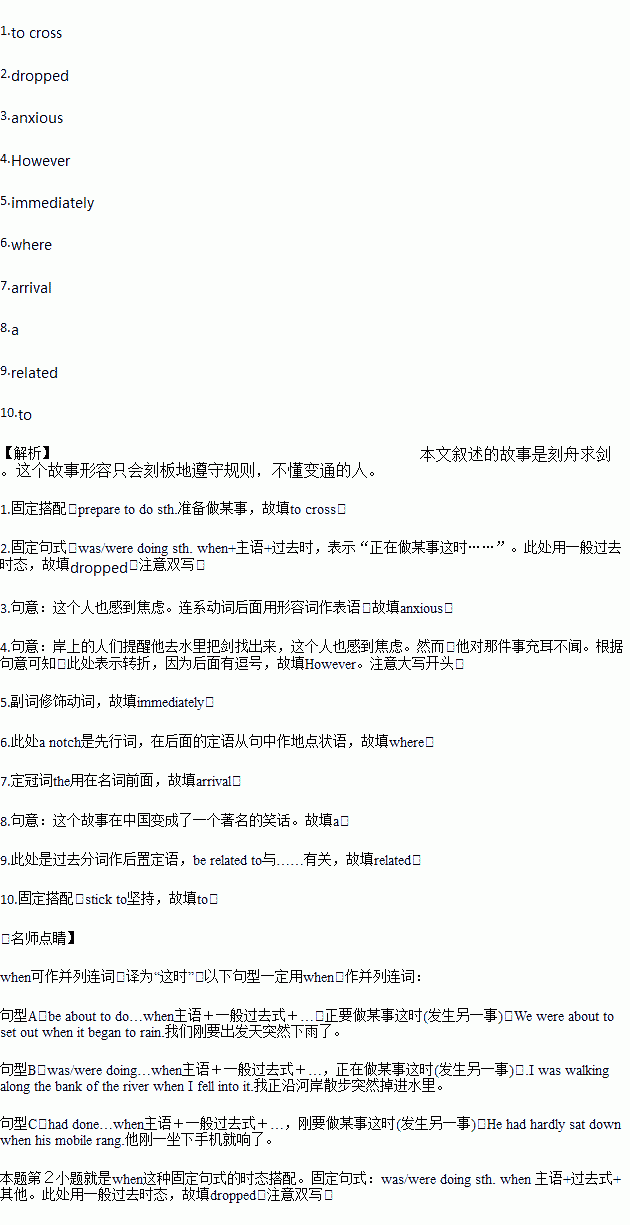题目内容
Once upon a time, there was a man from the State of Chu who loved his sword very much. One day, he was sitting in a boat preparing 1.(cross) a river, when he accidentally 2.(drop) his sword into the water. The people on board reminded him that he should go into the water to find his beloved sword back. The man felt 3.(anxiety), too. 4., he turned a deaf ear to that. And instead, he 5.(immediate) took out a knife and made a notch(刻痕) on the side of the boat 6. his dear sword fell. The people wondered why he did so. He said proudly the notch could help get his sword back. Shortly after the 7.(arrive) at the shore, he entered the water just beneath the notch he made. After rather a long time, he returned empty-handed. Without doubt, he was laughed at in public and his story became 8. well-known joke in China.
Today the idiom 9.(relate) to the story is used to describe a person who stick 10. strict rules without considering a changing environment.

